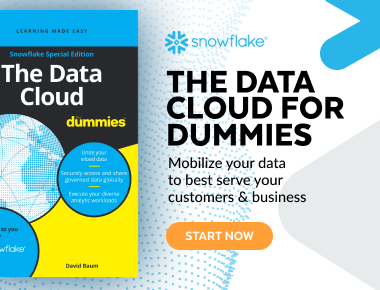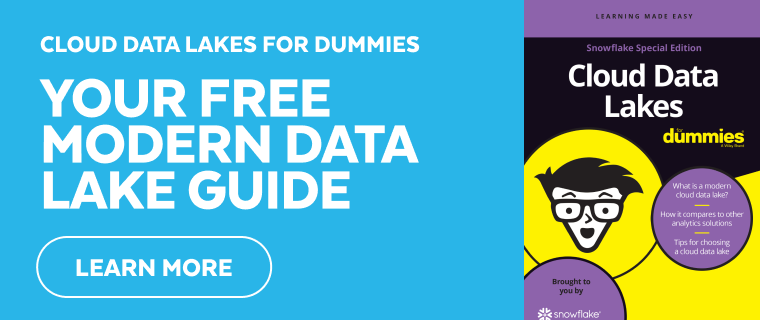What is a Data Platform?
Data platforms encompass a range if elements required to support the data management cycle. The prerequisites for efficient data management are numerous and involve data warehousing, data architecture, data analysis, data sharing and security.
ELEMENTS OF A DATA PLATFORM
Data platforms include data storage, servers and data architecture. Beyond that, there's data ingestion needs, data consolidation and the ETL process.
Businesses regularly face challenges with data management, including the unification of disparate data types housed in various silos, data lakes and on-premise servers.
The primary objective of a data platform is to deliver real-time business insights through data analytics, in a cost-efficient, scalable and secure manner. Today's most efficient platforms can housed across disparate geographies and in cross-cloud (or multi-cloud) environments to meet unique local or line-of-business requirements andto strenghten business continuity plans. They deliver a built-for-the-cloud SaaS-based solution.
Businesses seek a system provides a one-stop destination. A key element of that outcome entails unifying diverse data, including structured and semi-structured data.
Once the data has been accurately transferred to the destination database -- a process that should never be taken for granted -- data analysis can begin.
Modern data platforms enable customization (through data engineering and development) along with easy integration to BI tools and analytics applications. They can also facilitate training of machine learning models. As more nuances emerge in the data science vs. machine learning paradigm, platforms that can feed a ML model have the advantage in the marketplace.
Cloud computing platforms have increased their investments in AI. A variety of machine learning cloud services can be integrated into Big Data platforms and existing computing software.
DATA PLATFORM ADVANTAGES
In addition to enabling data analytics, data platforms can also migrate data, cleanse data and store data. They impact the entire lifecycle from data ingestion to enterprise reporting, with room for data sharing, collaboration and AI and machine learning models along the way. Snowflake's Data Cloud supports a multi-cloud strategy, including a cross-cloud approach to mix and match clouds as needed. Snowflake is available globally on AWS, Azure and Google Cloud Platform.

